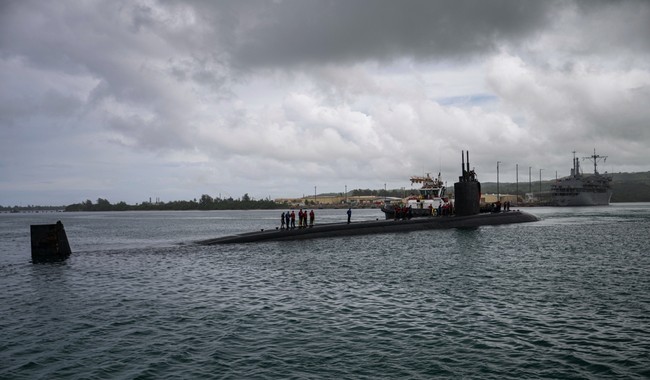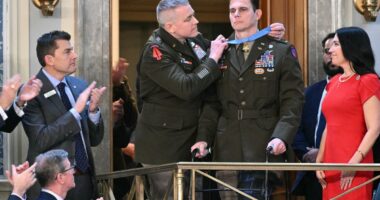Share this @internewscast.com

She felt confused. Something was stirring within her, something strange and frightening, yet also deliciously exciting.
She had met Brad only a week before at the grocery. He was tall and handsome, about her age, with eyes that shed warmth when he glanced her way.
She was waiting impatiently in a lengthy checkout queue, clutching yet another bottle of wine to enjoy alone in her apartment. However, it accidentally slipped from her shaky grip, smashing into a vibrant red pool for everyone to witness.
The onlookers gasped at her blunder. Out of the blue, Brad emerged. “It’s alright,” he assured her, “I’ll handle it.” His firm hands and steady arms guided her away from the embarrassing scene.
It was in that moment, although imagined, that Betty Evenson in the real world discovered her calling as a writer. Not just any writing, but crafting true-confession romance tales like no other. Her fingers would glide over the keyboard, weaving tales of love and intrigue as naturally as a river overflowing its banks.
Over the years, thousands of women would buy the pulpy magazines to consume her steamy stories. They would cry and suffer, love, and exult right along with Brad and Pam and all the other pretend protagonists that were liberated from inside Betty’s imagination.
Stories such as “At 14, I Already Had a Past,” and “Doing Without Sex Did Her In,” and “He Gave Melt-in-Your-Mouth Kisses.”
None of those readers would ever suspect that skilled storyteller was actually a widow, 63, when I met her. Nor would they imagine that Betty ran a Chevron gas station, a post office, a ham-sandwich stand, and comprised the entire population of a microdot community in the vast void that is central Wyoming.
People don’t drive cars across that beautiful void; they aim them.
Betty Evenson was a fast‐talking, loud‐laughing, friendly woman who got most of her soapy-story ideas from truck drivers who stopped to use the store’s bathroom and gulp down the sagebrush ham sandwiches that had made the Bright Spot as famous as possible in the middle of nowhere.
Over the years, I spent countless hours, days, and miles discovering wonderful people like Betty, spending delightful moments coming to know them, then crafting their stories for distant newspaper readers. And now in Malcolm’s Memories, for RedState readers.
“What are you going to call this story?” Betty asked me, then answered herself. “I know. ‘I Sell Gas by Day and Sex by Night,’ or ‘She Peddles Gas, Ham, and Passion.’”
Betty then broke into the jolliest cackle this side of Granite Falls.
Running her little business wasn’t a job for Betty. It was a way of life. Up at 7 a.m. Open for business at 7:02. By 7:05, she’d be writing until a customer arrived, then back to writing. She was making ham sandwiches for the children of the children she made ham sandwiches for.
“Confession stories are very moral,” Betty confided between customers. “Today, they let sinners enjoy it, but sin is never triumphant. So, I use the old sin, suffer, and repent routine.”
Betty was using a large can of green beans as a front-door stop. “I used a can of pineapples for years,” she recalled, “but I got hungry one night. How many people can say they ate their doorstop?”
She found writing harder with age. “You have to feel things to write them,” she explained, “and when you get older, you don’t feel things so strongly anymore.”
But Betty Evenson had a boyfriend named Cliff, and he liked to dance, which was good. “People think the only reason old folks get married is for companionship,” Betty told me. “Me, I enjoy falling in love. It’s a wonderful feeling. You know, you’re never too old to fall in love.”
“Hey,” she said, grabbing a piece of paper, “that’s a good story title.”
I was at my desk one afternoon when the phone rang. “Mr. Malcolm?” said a strangely familiar twang. “This is Ross Perot.”
I looked around the newsroom to see who was pranking me. No one.
It really was the Texas billionaire. He had tracked down a reporter he’d never met and called him, without a secretary, for two reasons:
Perot wanted to say in person how much he admired the reporter’s lengthy, detailed story that day on the lives and deaths of U.S. troops in recent combat and to inquire how he could acquire several hundred copies of that day’s newspaper for their families.
Now, it wasn’t unusual even before email and the Internet for reporters to hear from readers. Most of the time, they were unhappy about something. I didn’t mind. Without readers, there’s no real need for writers. Still today, I appreciate the comments, shared experiences, and exchanges on these RedState posts.
Personal Fact: In my six decades of writing thousands of stories in newspapers and elsewhere, I have never witnessed anyone outside the family actually reading one of them.
So, Perot’s personal call was intriguing. I inquired why he called. And he inquired if we could go off the record, meaning I promised not to write what he was about to say.
Since I had no intention of writing about a satisfied reader back then, even a famous one, I agreed. Perot died of leukemia six years ago this week at 89. I believe that vow expired then, too.
In our call, Perot, a graduate of the U.S. Naval Academy, explained his abiding admiration for all our military volunteers and his desire to show that appreciation for their dedication and sacrifices at any time and in any way he could, regardless of his personal views of the U.S. military action.
But he said he didn’t want that appreciation clouded by the inevitable media attention his involvement always attracted.
Let’s be honest, somebody rich seeking to avoid attention for helping others is not an everyday event. I was impressed. That must have come across. Our potentially perfunctory phone chat about purchasing some extra newspapers turned into a lengthy conversation. And we had a couple of follow-ups later.
I asked how Perot showed that appreciation. He reminded me we were off the record. Then, he continued. Whenever the U.S. was involved in military actions like the 1989 invasion of Panama, he would find out where the wounded were taken.
He would show up without fanfare in the hospital wards and spend the day visiting with individuals by their beds. They had lost limbs, eyesight, or been badly burned. Bandages prevented some from even seeing their visitor. So, he held their hand.
The direct, raspy voice of the Texarkana native would become familiar and pointed during his later presidential campaigns. But that day on the phone, it got choked up. He said the soldiers’ spirits and response to his attention were inspirational.
Perot gave each soldier a business card with his direct number. He told them, Your job now is to get well. But if you leave the service and want a job, you’ve got one working for me, guaranteed.
Perot said his favorite story happened as he left an Army hospital ward in San Antonio. He had turned and said, “Now, if you guys need anything else, just let me know.”
A young trooper shouted, “Yeh, Mr. Perot. Can you get some women in here?” The ward erupted in cheers.
“I went back to Dallas,” Perot said. “I called my friend Jerry Jones and explained the situation.”
Days later, Perot was returning to San Antonio in a private jet filled with Dallas Cowboys cheerleaders. They spent the entire afternoon and into the evening chatting and taking pictures with every one of the boys in that ward.
I believe on our phone call that day that I heard the maverick, no-nonsense billionaire actually chuckle over that memory.
I do not remember where it happened, but I was chatting with a Navy officer at some public event early in the 2000s. I regaled him for too long about my childhood fascination with World War II submarines.
About a month later, out of the deep blue, I was invited to take a ride on a nuclear submarine. No, I am not kidding.
Please indulge my enthusiasm here briefly. I was assigned to the USS Jefferson City, a Los Angeles-class, nuclear-powered, fast-attack submarine, then based in San Diego. Its home port now is Guam, and today it’s running silently somewhere deep in the Western Pacific.
Nuclear submarines are called boats, which seems ridiculous when you see one up close: They are immense. The Jefferson City is a few feet longer than an entire football field, including both end zones.
Yet it’s reportedly capable of doing nearly 35 miles an hour underwater, more than three times the speed of World War II subs.
We got a briefing and tour of the quarters for the 140 crew members, shared a meal, and learned about the racks of shiny Tomahawk missiles stacked along aisles. Spent some time up in the windy sail as we knifed effortlessly through chilly Pacific whitecaps.
The sail used to be called the conning tower. Inside, a sonar operator removed his headphones and turned up the deep-sea sounds on the console. “There, that’s a whale,” he said. “Those are dolphins.”
No photos allowed. But what surprised me was the periscope. It gets raised and lowered just as you’ve seen in Clark Gable movies, with little handles on each side that drop down for scanning 360 degrees outside.
“Want to take a look?” asked the officer.
Is the ocean deep?
He lowered the scope. I leaned in to peer through the lens.
“What do you see?”
Nothing, I said. Absolutely nothing. Just a very distant, very empty horizon.
Without a word, the officer twisted the handle one small click. “Anything now?”
Oh, yeah! There’s a little fishing boat way over on the horizon.
One more click.
No, wait! OMG, that’s an oil tanker.
Another click.
And it’s registered in Panama!
Mouth open, I slowly turned my head to look up at him in civilian amazement.
He smiled smugly and shrugged.
Malcolm’s Memories: A Toddler’s First Fourth
That Time I Wore $15K in Cash Into a War Zone

















